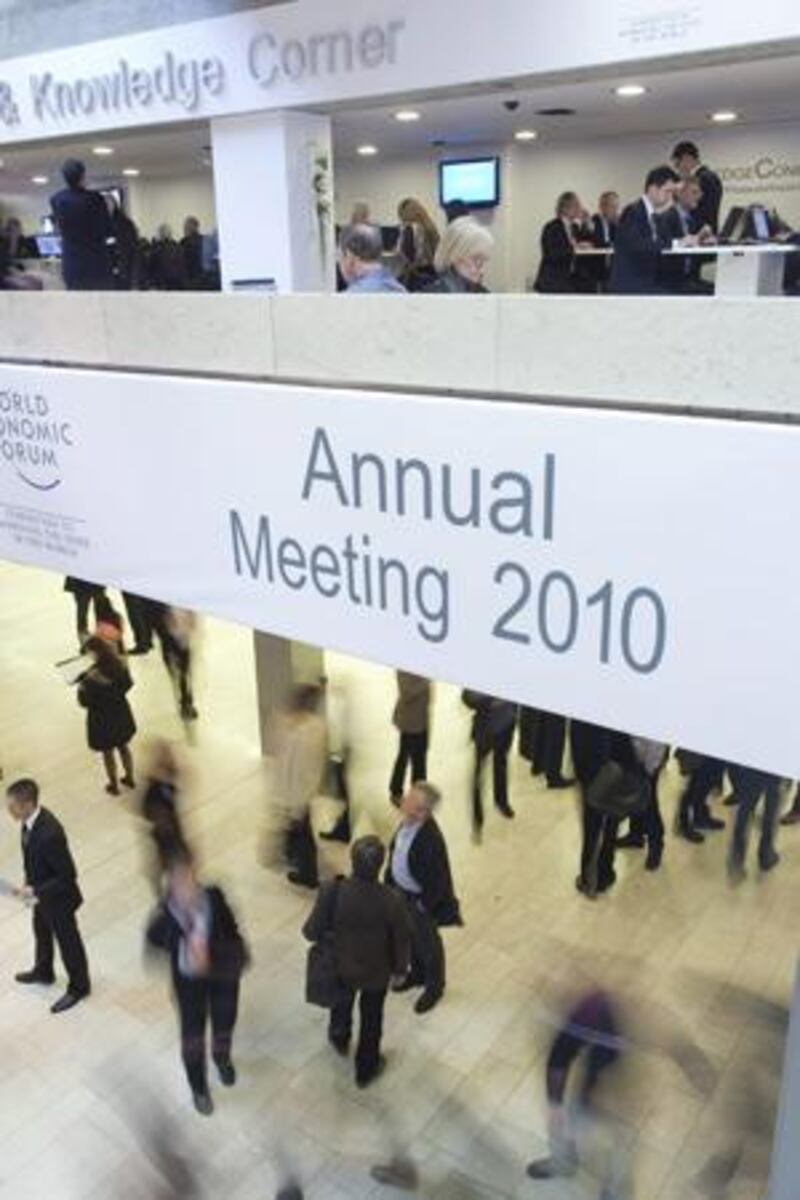A programme encouraging young Arabs to start their own companies will be part of a World Economic Forum (WEF) initiative to reduce systemic weaknesses in the global economy. YallaStartup, founded last year by three Middle East technology entrepreneurs, was identified at the WEF's annual meeting in Davos last month as a key way to address the Arab world's unemployment crisis.
"The numbers we are facing are clear: 65 per cent of the region is aged less than 30, and we need to create 90 million jobs in the next 20 years," said Habib Haddad, one of YallaStartup's founders. "But the region created less than 60 million jobs in the last 50 years. We need big changes." YallaStartup links aspiring entrepreneurs with successful business people, investors and mentors, advocating entrepreneurship as a viable career path for young people.
It is run primarily as an internet-based network, but aims to engage in more on-the-ground work in the future. The programme is being championed by the Forum of Young Global Leaders, the youth wing of the WEF. Mr Haddad is a member of the forum, alongside prominent young Arab business people including Mustafa Abdel-Wadood, the managing director of Dubai's Abraaj Capital and Azmi Mikati, the chief executive of Lebanon's M1 Group.
Also part of the forum are two of the Middle East's most active investors in young entrepreneurs: Khaldoon Tabaza, the founder of Riyada, an investment fund that was acquired last year by Abraaj Capital; and Emile Cubeisy, who manages Interactive Ventures Holdings, a venture fund for internet companies. Such investors played an important role in YallaStartUp's being adopted as a WEF-backed initiative for the region, Mr Haddad said.
Regional technology entrepreneurs scored two big wins last year with Maktoob, a web portal, and Rubicon, an animation studio, both based in Amman. The internet giant Yahoo bought Maktoob, and the Bahraini buyout company GrowthGate acquired 30 per cent of Rubicon. The deals have sparked new interest in start-ups among investors and policymakers. A number of venture capital or early-stage investment funds have emerged in the region over the past year and governments in the UAE and abroad are formulating laws and policies to stimulate the establishment of more small businesses.
Since the onset of the global economic crisis, the WEF has discussed the need for a rethinking of the global economy. In the West, the WEF's focus is primarily on the future of the global financial system and its regulation. But in emerging economies, and particularly the Middle East, there is a focus on stimulating local economies through entrepreneurship, a purpose for which YallaStartup was created, Mr Haddad said.
"We have a huge ambition; we want to solve unemployment in the Middle East," he said. "Right now, youth unemployment is one of the region's biggest problems, but we believe it can be turned into an even bigger opportunity." As an early step, Mr Haddad wants entrepreneurs to enjoy the level of respect in Middle Eastern society that is currently accorded to bankers, military officers and bureaucrats. That means breaking down cultural stereotypes about self-employment.
"Some say that behind every great man is a great woman," he said. "Well, what is even more true is that behind every Arab entrepreneur is a great Arab mom who thinks he is crazy for leaving his cushy job to become an entrepreneur." @Email:tgara@thenational.ae





